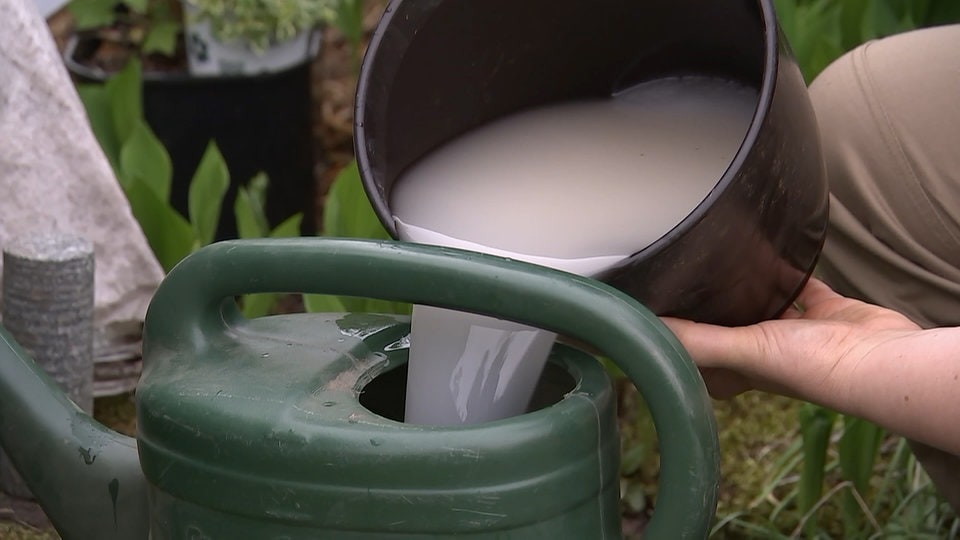What to do if the compost pile takes forever to rot? It makes sense to create another pile for cuttings and leftover fruit and vegetables, so that the organic waste can be filled up in turn and can mature into humus in peace.
But if you only have one composter, there is a trick you can do to speed up the process. To really get the decomposition going, it’s not necessary to buy commercial compost accelerator or a plastic quick composter. You can simply inoculate the compost with a homemade, natural solution that will help the rotting process, make the pile collapse faster and result in valuable humus soil sooner.
Contents
Make your own compost accelerator
You can make the solution to inoculate the compost pile from simple ingredients that you may have in the kitchen anyway.
You will need: 1 cube of fresh yeast
500 g of white or brown sugar
1-2 L of lukewarm water.
Tip: Instead of commercial yeast and lukewarm water, you can also use home-made wild yeast. Since it is less concentrated, it is recommended to use twice the amount, i.e. about three to four liters.
To prepare the solution:
1. pour lukewarm water into a saucepan or bucket.
2. add sugar and yeast and stir until everything is dissolved.
3 Let the mixture stand for at least an hour, preferably at room temperature or outside in the sunshine.
4. pour into a watering can of about ten liters and fill with water.

This will make the compost accelerator ready for use.
Water the compost pile with it as evenly as possible, mixing it a bit with a digging fork or similar if necessary. Within the next few days, composting will literally “heat up” – the temperature will rise and decomposition will accelerate. After about a week, the compost can be rearranged to further stimulate the process.
To do this, wear down the pile in layers and pile it back up in reverse order.
Depending on how much composting had progressed before treatment, the compost will be ready to use after a few weeks and can be used for a natural garden or herb balcony. Since the high nutrient content is too much for some plants, it is recommended that the compost be mixed with regular garden soil to make good planting soil.
Tip: A composting toilet is an environmentally friendly way to take care of big and small business in the garden.
Here’s how the DIY compost accelerator works
Compostable waste is decomposed by microorganisms, bacteria and fungi, as well as larger animals such as worms. When new plant waste is piled up on the compost heap, the microorganisms first have to “work their way through” to it before they can start their work.
The yeast fungi, which are immediately put in the right place with the irrigation water, multiply very quickly and accelerate decomposition. Sugar and water provide optimal working conditions for the microorganisms. Other helpful factors for rapid decomposition are a moist, warm and airy environment.
Therefore, it is important to create and maintain the compost pile properly. Tip: If you have a worm compost on your balcony, you can also make a compost accelerator with fresh worm humus. The soil is teeming with microorganisms that help decompose it. Add about 200 grams of worm humus to the water instead of yeast.

